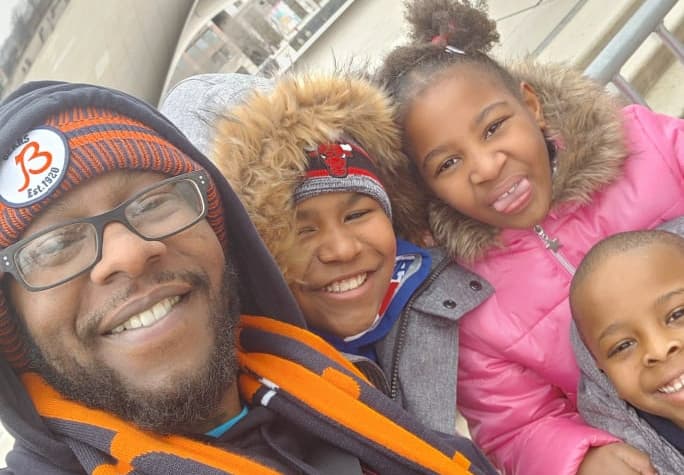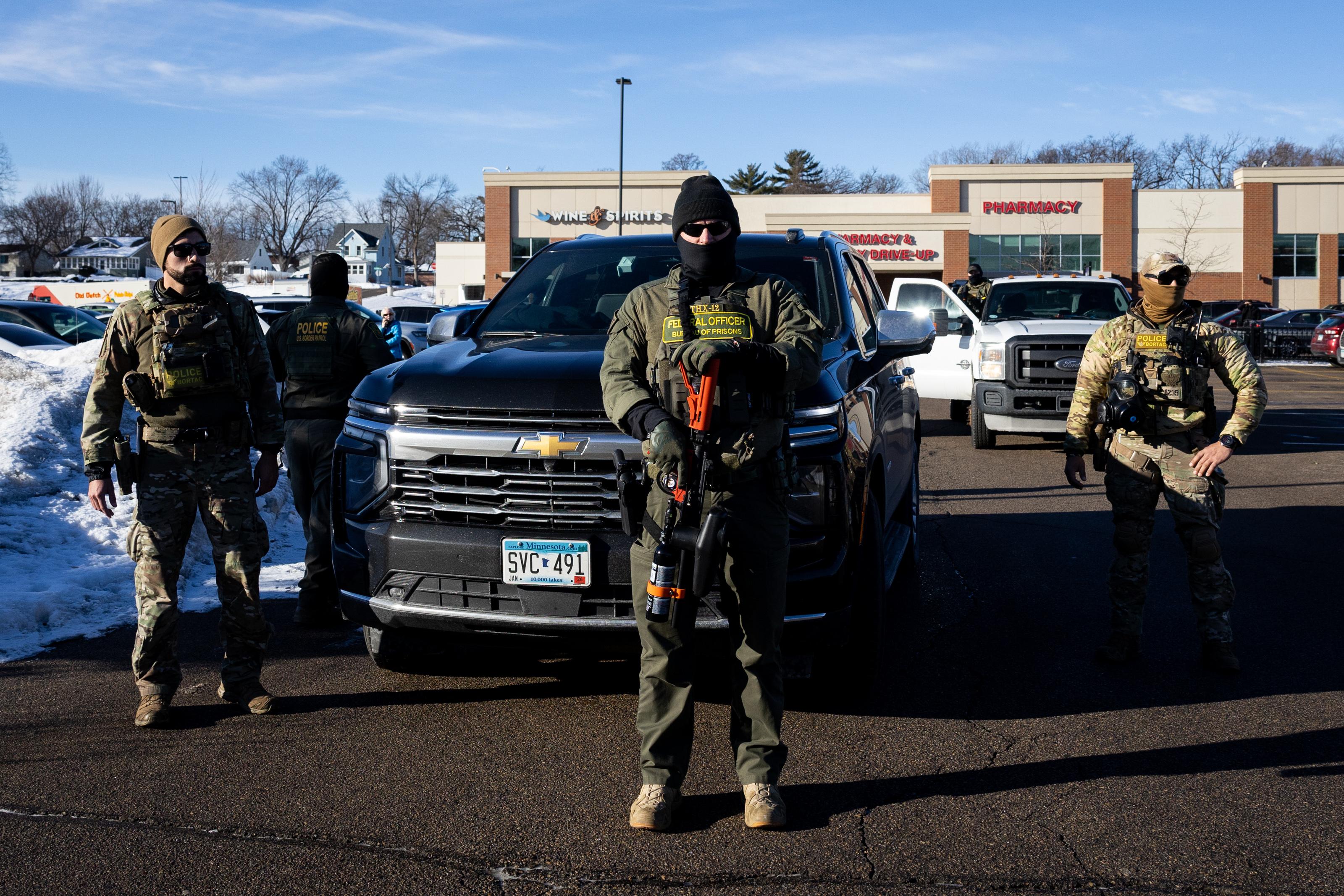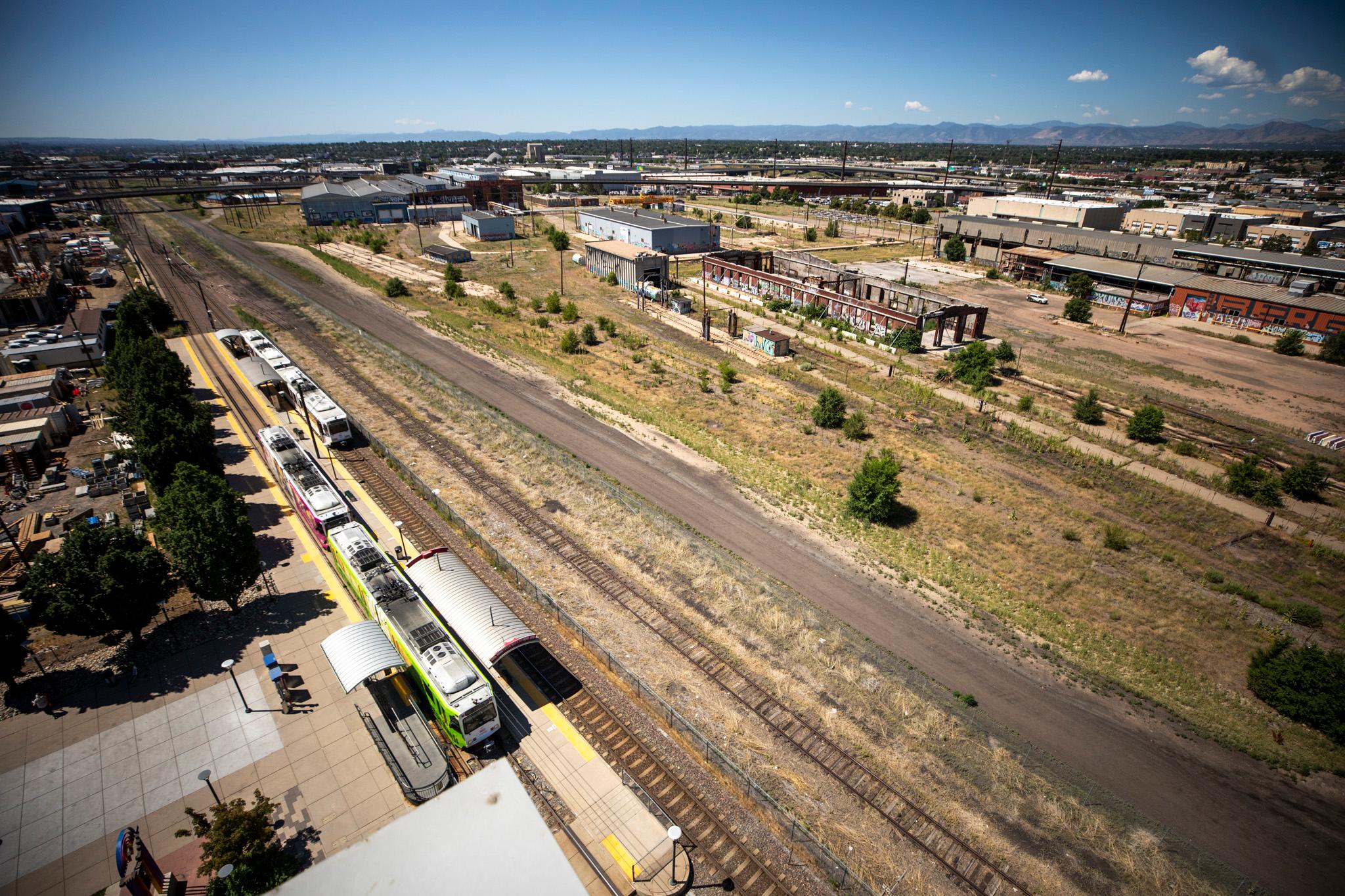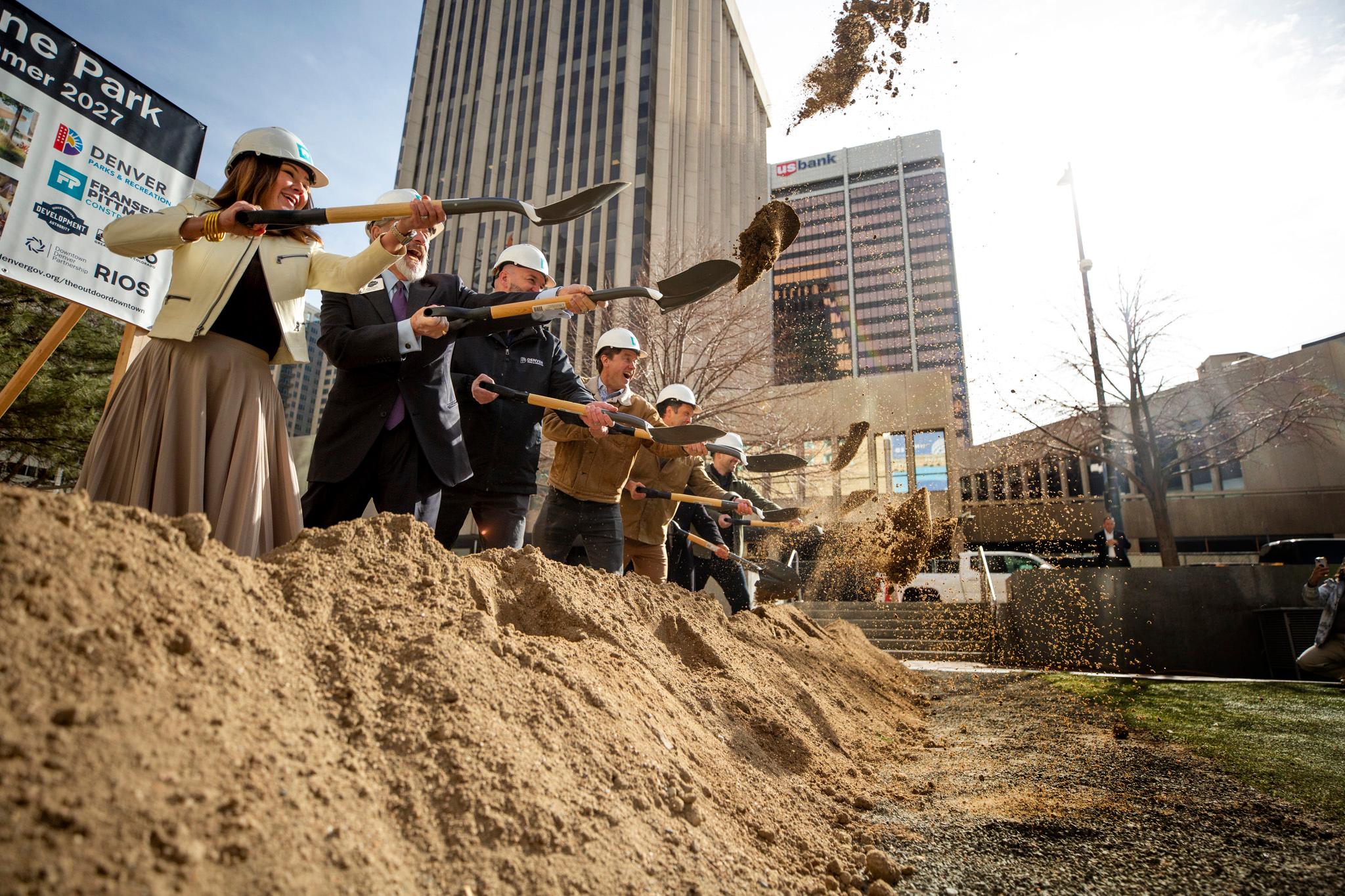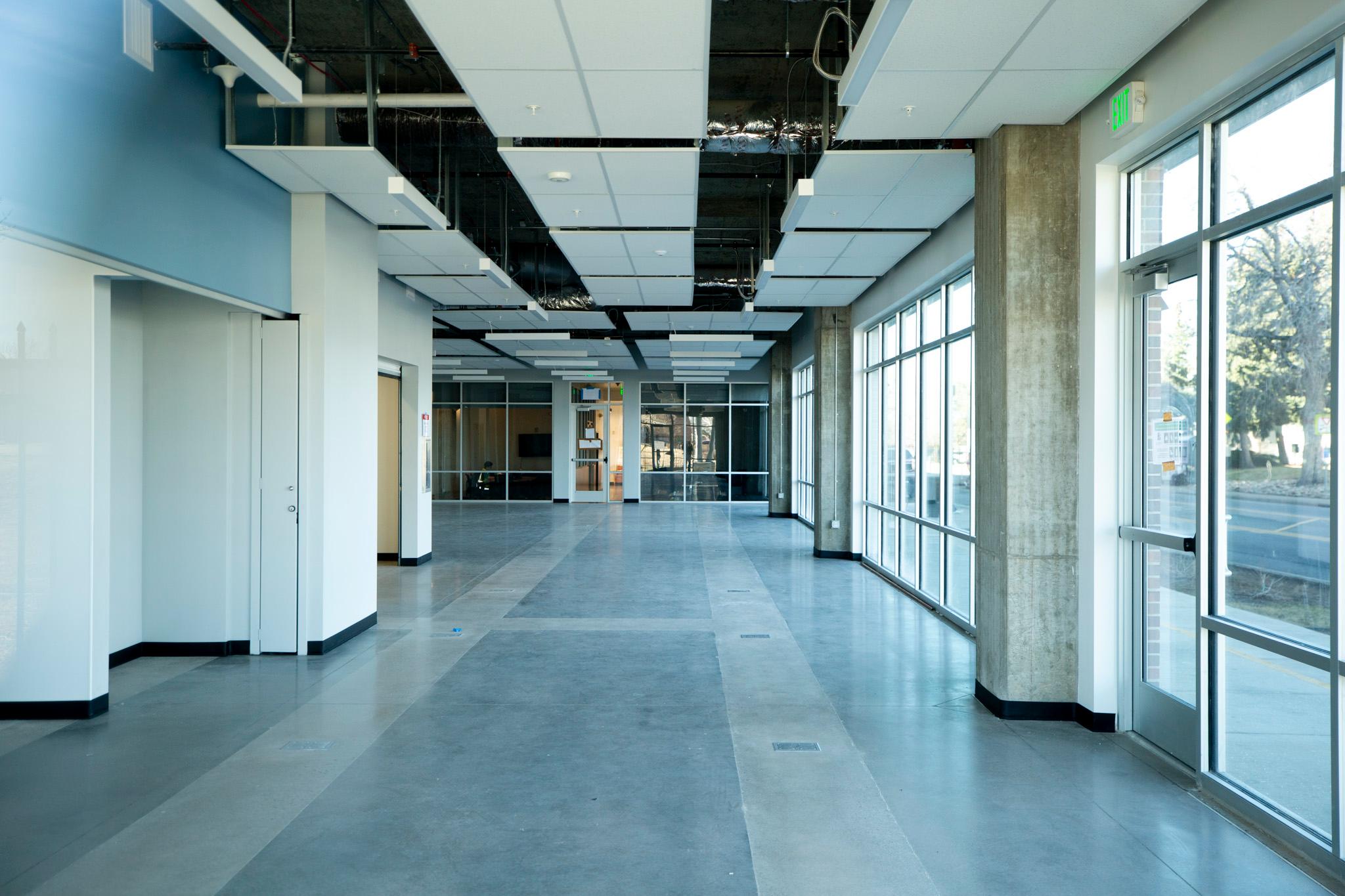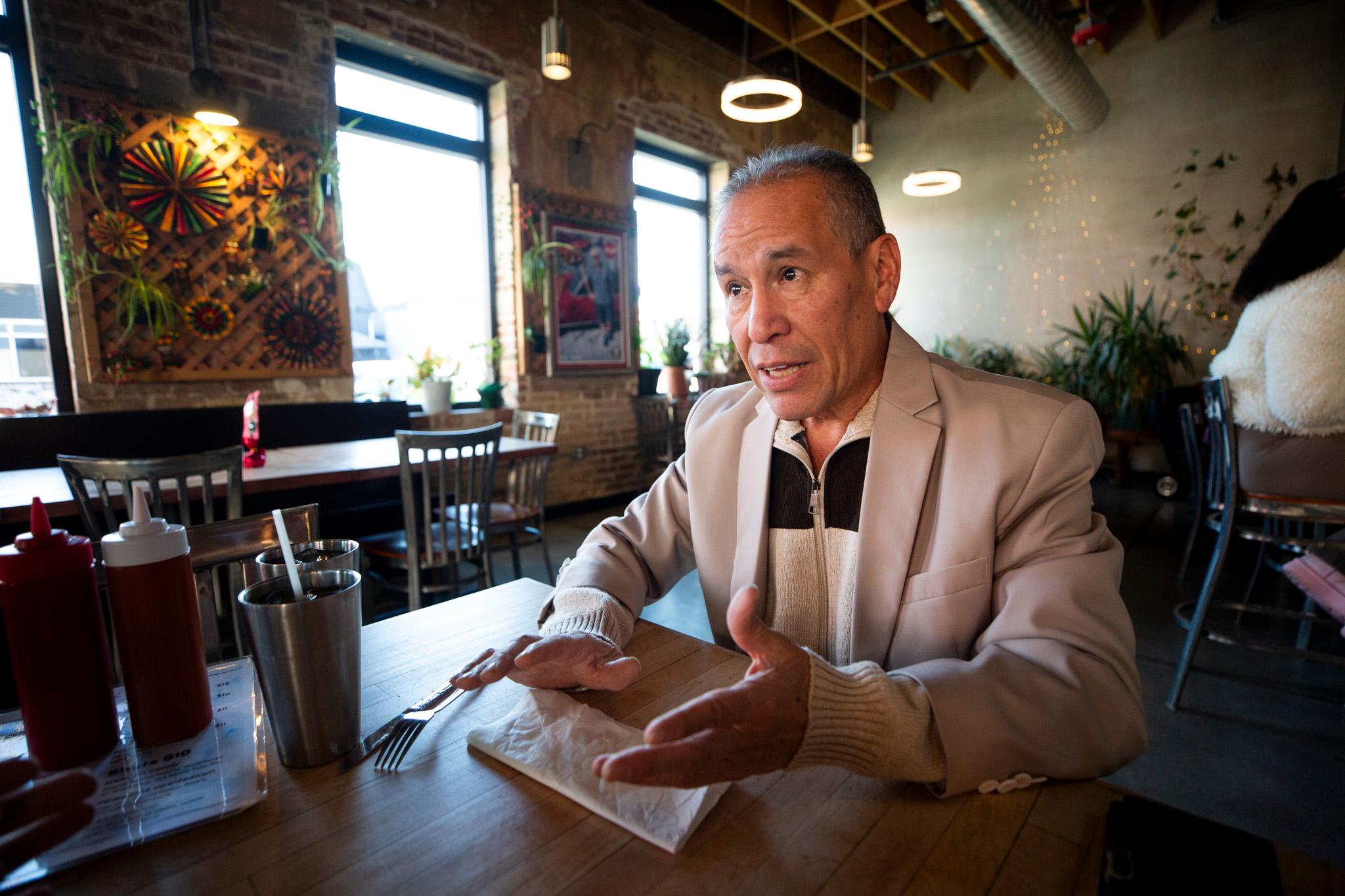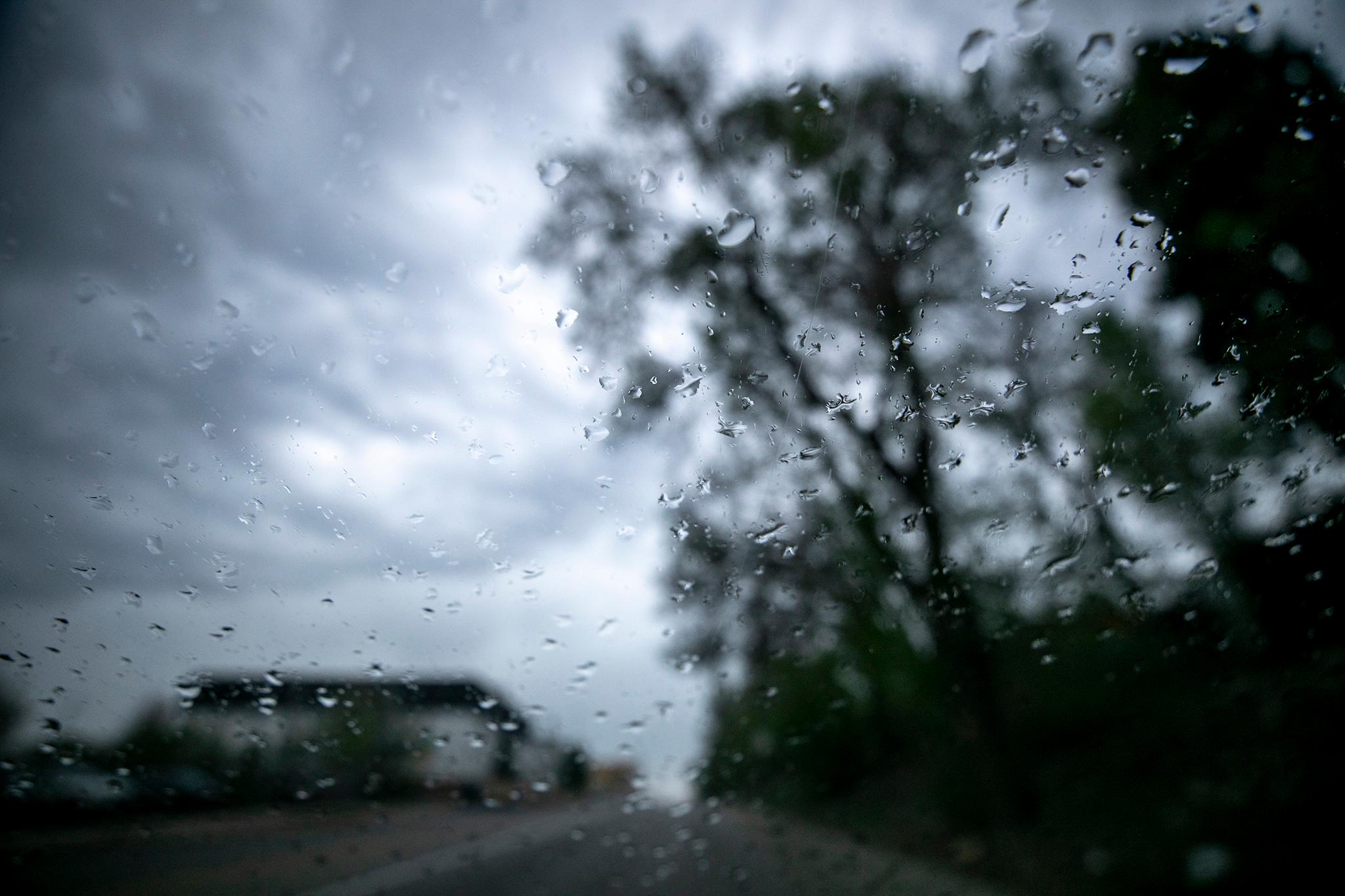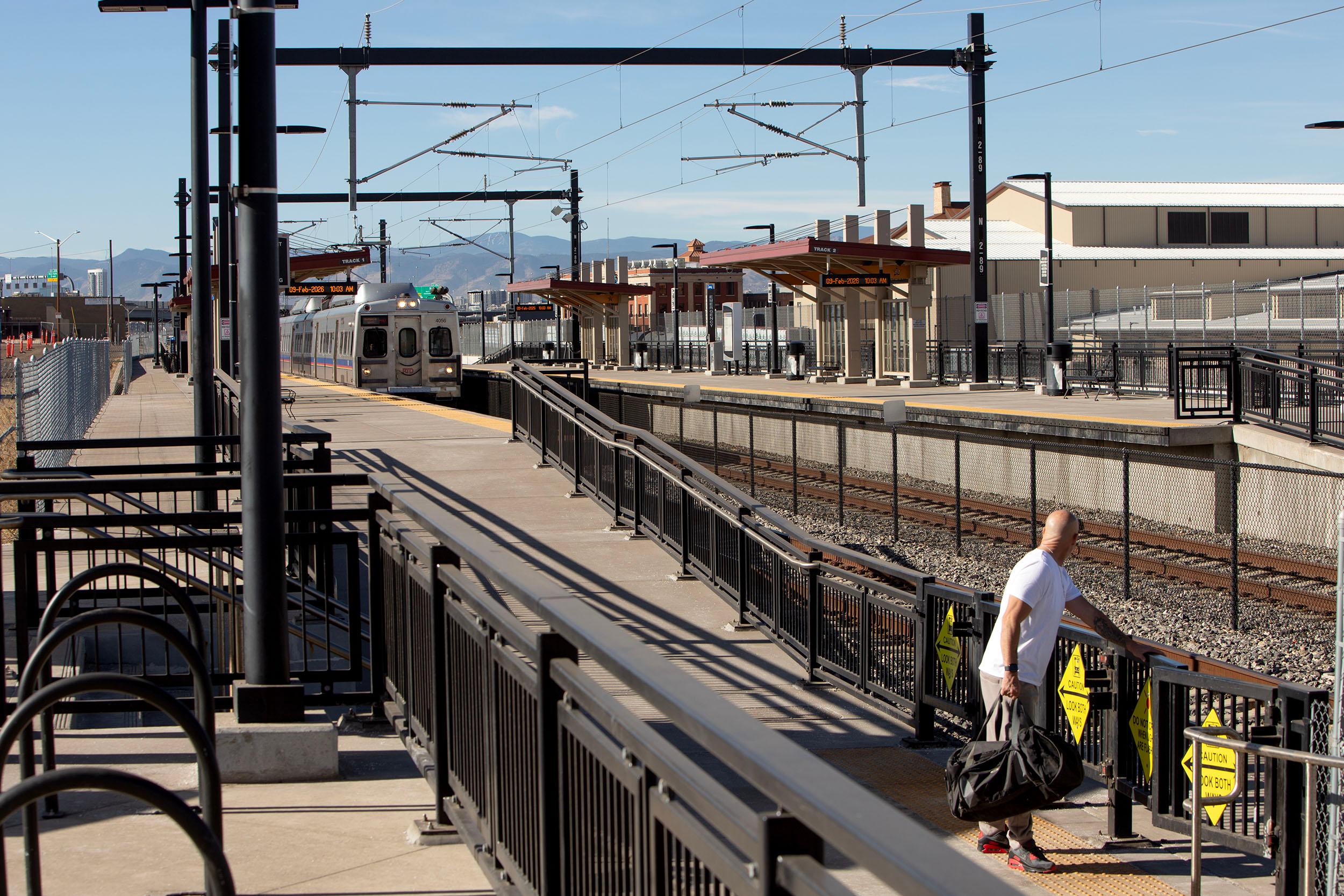Last week, the school called Chy Reco. One of the single dad's eight children had a headache and needed to be picked up right then.
A headache? When Reco was a kid, nobody would get picked up for that.
But the Centers for Disease Control notes that headaches are a possible sign of COVID-19, the school explained, and the request was urgent. So he went to pick up his child and scheduled a COVID test.
With one in four tests coming up positive in Denver, schools are on high alert but also trying to avoid shutting down or moving to remote learning, Denver Public School officials have said. But parents -- who have spent the past two years reordering their lives to accommodate long school shutdowns -- are still scrambling, uncertain of what to expect.
Before the pandemic, Reco, a musician, had been making a living performing regular concerts. But he had found himself out of gigs after venues shut down and missing the checks that came with them. Music wasn't exactly a lucrative career, but he had been getting by. Without that, he had to find another way to earn a living.
When his kids were schooling from home through various stints in 2020 and then 2021, he couldn't take an in-person job. Not only was it not safe, but someone had to watch the children.
So Reco opened his own business, QoQ Customz. He started by selling Black Lives Matter-themed Father's Day shirts. He made music during the pandemic, including the popular "I Can't Breathe (Again)" collaboration, a protest song against the police murder of George Floyd. Eventually Reco expanded his company beyond just fashion.
"Now we do way more than just shirts," he said. "We're officially a branding company now. So we do full customization for people. We help manage your social media, build websites, photography, then of course the clothing customization part of it as well."
His business grew so quickly during the pandemic that he even opened an office, on South Parker Road. There, he set up his printing company, music studio and office space.
He views the enterprise as fairly pandemic-bulletproof. If schools shut down or society goes on lockdown, he can bring his kids to his office. He's even set up video cameras in their workspaces to ensure they're staying focused during online schooling.
He's unsure how long schools will stay open in person.
"I get emails every week saying there's been an exposure from a student, exposure from a staff member or you know, somebody has a case COVID," he said. "And I'm just like, you know, at this point in time, I should just probably just take my kids back to doing remote learning at home."
Reco wants officials to take more decisive action.
"We've already seen what we can do as a country when we shut down," he said. "Let's just go ahead and go the max, the balls-to-the-wall part of it, to shut it down for a whole month. Enforce a curfew, and only the essential people who need to leave their house will go to work."
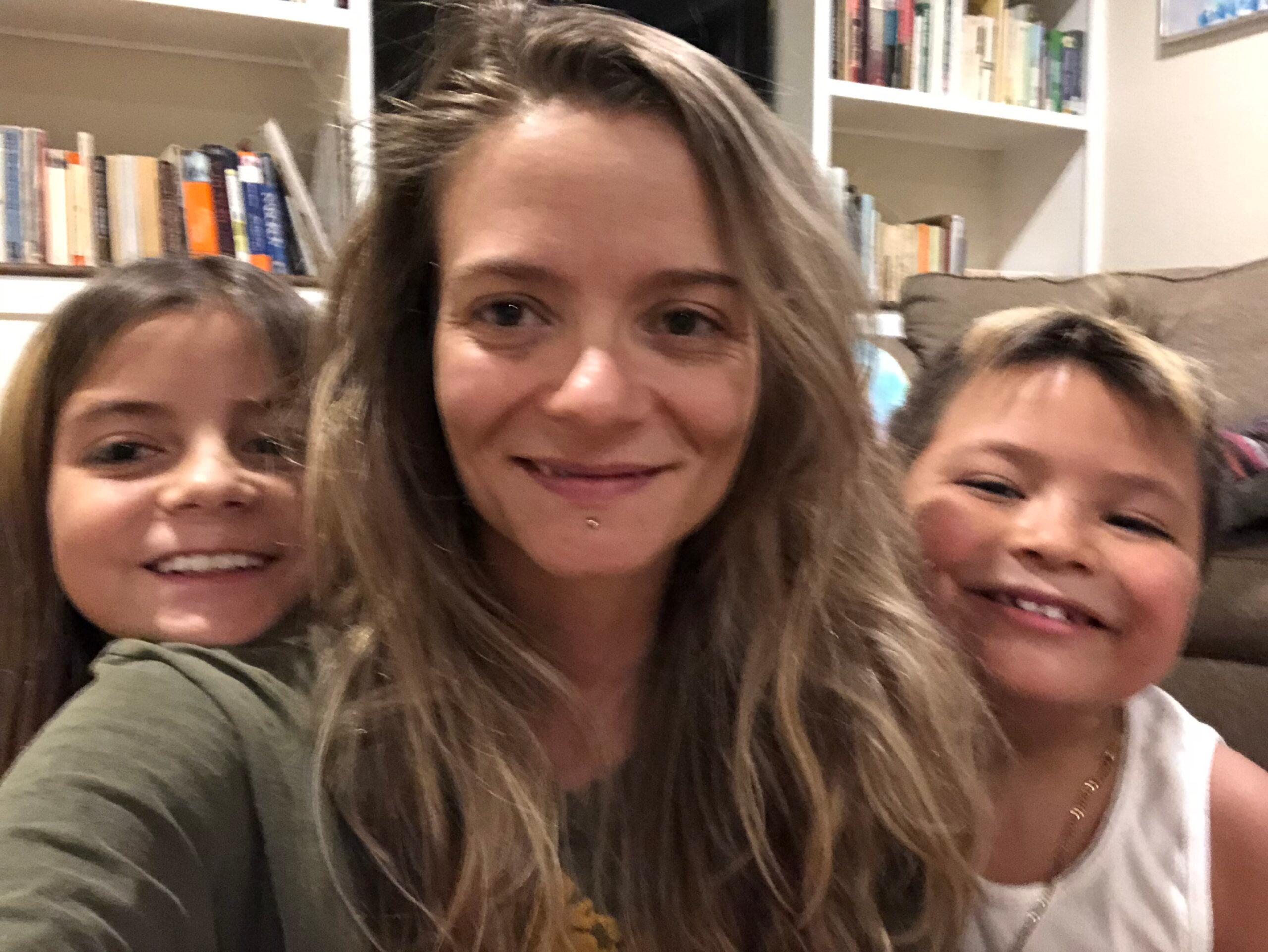
Not all parents think shutdowns are the best idea for their kids.
Simone Groene-Nieto, whose kids were in Denver Public Schools before she was priced out of the city and moved to Arvada, is glad that the Jefferson County school district is committed to keeping classrooms open.
She's aware of the dire statistics in the metro area when it comes to COVID-19, but she's also concerned about the loss of learning when students are forced to stay home. So even as the pandemic spikes, she's grateful her school is committed to prioritizing in-person learning. It's what pediatric experts from Children's Hospital and Denver Health continue to recommend, even as omicron patients threaten to overwhelm regional hospitals.
"We're not panicking," she said. "Things are pretty good over here, I would say. Like our principal -- I really, really value her leadership. She's a steady and indefatigable leader. And she's really committed to in-person learning. So me and every fellow parent that I talked to stand behind her on that."
The schools' move to remote learning was an educational disaster, as Groene-Nieto saw it.
"Last year, they were kind of on and off in person and then at home," she recalled. "And it basically was akin to not having sent them to school for a year in terms of what they learned."
As long as things are safe, she wants her kids to continue to learn in person. But just in case another lockdown happens, she has found a job she can do at home that will allow her to take care of her children, even if they return to remote learning.
Groene-Nieto had been an employee at the Denver Public Library for a decade before taking a job in the Jefferson County Public Library system as the head of diversity and inclusion. She left that job to start her own business as a diversity, equity and inclusion consultant, working largely with tech companies. As it became clear during the pandemic that she was going to have to supervise her students' education from home, she decided that running her own business would not be sustainable.
"It was so difficult to figure out how to meet my bills and be able to have my kids at home for school during some of it," she said. "And that's when I started being like, 'Oh, maybe instead of being a consultant, what if I just try and get into this [tech] industry. People are making money and are able to have safe lives.'"
So she started exploring her options.
She took a job at a tech firm she had worked for as a consultant. Now, she's working with a team building software for big corporations.
"I live two blocks from my kids' [school]," she said. "So whether it's the pandemic, and I know that they can come here and they can learn from home, or whether it's like, every week, I get one or two calls from the nurse that [my kid] has bonked his head too hard, I can go pick him up all the time. I decided to choose my family over career, basically, and this is what I ended up with, and it's been pretty pandemic-proof."
Though she's ready for a lockdown if it happens, she's worried about it.
"I imagine, OK, I got a notification: Next week, we're going back to remote school. What I'd be thinking? 'Well, s***, my kids aren't gonna learn,'" she said. "Because I have to prioritize my work from home so that we can keep a roof over our head. So there's going to be a lot more of me literally locking the door to my home office and doing my best to trust that my 8 and 10 year old will be paying attention in their lessons, though I'm fairly certain they won't be. There's an understanding that their education will really suffer."
But her kids are smart, she said, and she's confident they'll learn what they need to eventually.
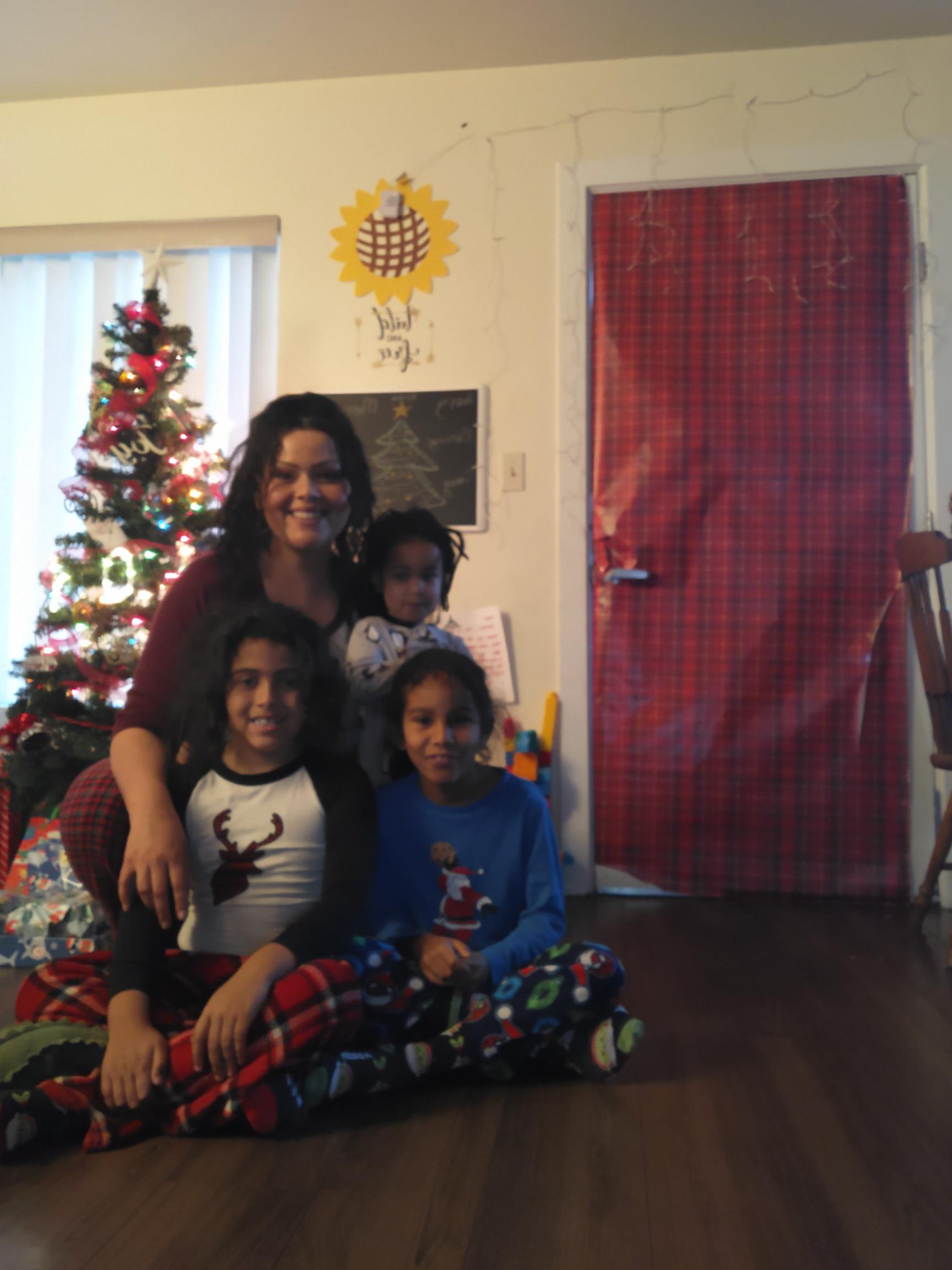
Many families are trying to give their children a sense of safety and security through dangerous and uncertain times. That's not always easy.
"Are you going to die?"
That was the question Johnitta Medina's kids had for their mom when she found out she had COVID around Christmas.
After nearly two years of disrupted education and peers telling them about how deadly the coronavirus is, her kids were terrified they would lose their sole parent. Medina is the only caretaker of her three children: her 9-year-old son and her late sister's 9 year old, and her third child, who is nearly 3.
"I had to reassure them, like, 'Everybody has a time,'" she said. "'I don't think this is mine. I don't think this is what's going to be that for me. And, you know, this is just an incentive for us to continue to wear our masks and wash our hands and try to distance when we can.'"
Unlike parents with plenty of family, spouses or roommates in the house, she's largely on her own, outside of a crew of fellow single moms who support each other when they can.
"I got super-duper sick," she said. "And that was particularly hard, because I am here by myself with my kids. So the caretaking never stops and never ends."
Her goal was to be honest with her kids about how they're feeling about her getting COVID. But she has also aimed to give them a sense of safety and security -- even when she's not always been sure how her family will survive.
Prior to the pandemic, Medina had a string of in-person jobs working with children. They didn't pay much, and she spent between 80% and 90% of her income on rent, leaving little left to care for her family.
During the pandemic, she secured subsidized housing, and the amount she pays for it is based on her income. Because she has not been able to leave her children, one of whom is autistic, at home or in the care of other providers, she has had to find ways to earn an income from her apartment. She launched Momma Jah's LLC, a health and wellness company that offers consultations with clients, teaching them the basics of cooking and self-care, and sells spices and merch.
By November, she was beginning to explore participating in in-person events, but as the pandemic began to spike again, she backed out. Keeping her children safe is her priority, she said.
And it's not just her own family she takes care of. When she's not working on her own business or taking care of her children, she volunteers to take care of other people's kids in the community.
"I'm like the neighborhood mom in my complex," she said. "So just like, you know, making sure kids in my neighborhood are fed. If they're not getting fed at home, how do I be a support person to the families that are around me. Because when you have people underserved, that's how other issues are created."
Despite so much of her own life being altered by the pandemic, she'd prefer the schools to go to remote. At least then, she would know what to expect.
Her family just came out of quarantine from their bout with COVID. As she was taking her kids to their first day of school this winter, they got a call from a family friend they had been hanging out with who had COVID. School policy required the children to stay home until they were tested, and they were disappointed.
As things are, with the threat of going remote looming, parents are left anxious, she explained. Will today be the day the school district or classroom goes online?
"It's a lot of back and forth and back and forth," she said. "I think that adds to a little bit of the anxiety that a lot of people have. It's just the not knowing. "
As she drove her kids home from what should have been their first day back school to quarantine again, her son had one question on his mind that nobody could really answer: "How long is this supposed to last?"

